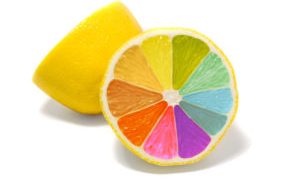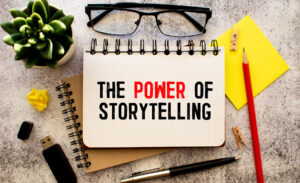It’s unclear how 2020 will show up in the history books, but for me, it’s been a time where events on a global scale have prompted me to pause, reflect, and learn.
While the COVID-19 pandemic and recent events prompting a global call for social justice are not entirely related, there are some interesting connections.
 The shelter-in-place practice has found many of us with additional time to slow down and do some soul-searching. That self-quarantining has many feeling isolated. Even if you are sheltering with loved ones, chances are you’ve missed your family and friends you’re unable to see. I am more aware of how vital connectedness and belonging are to me. It’s a key component of my mental and physical well-being, and after reading another great book from The Next Big Idea Club, I better understand why.
The shelter-in-place practice has found many of us with additional time to slow down and do some soul-searching. That self-quarantining has many feeling isolated. Even if you are sheltering with loved ones, chances are you’ve missed your family and friends you’re unable to see. I am more aware of how vital connectedness and belonging are to me. It’s a key component of my mental and physical well-being, and after reading another great book from The Next Big Idea Club, I better understand why.
Dr. Vivik Murthy was our 19th Surgeon General, and as such, he spent his time and energy focused on protecting, promoting, and advancing public health for the nation. In his book, Together, he makes a case for viewing LONELINESS as a public health issue.
Loneliness is the root cause and contributor to many of the epidemics sweeping the world. He argues that it’s affecting our health through alcohol and drug addiction, violence, depression, and anxiety. It impacts our education experience, performance at work, relationships, and why we feel so divided and polarized.
A 2018 AARP study found that one in three American adults over the age of 45 are lonely. Hunger and thirst signal our bodies that we need to eat and drink. Loneliness is the signal that reminds us when we need to connect with other people.
Researchers identified three “dimensions” of loneliness to reflect the types of relationships many are missing.
- Intimate, or emotional, loneliness is a longing for a close confidante with whom you share a sincere trust and mutual affection.
- Relational, or social, loneliness is the yearning for quality friendships and social companionship and support.
- Collective, loneliness is the desire for a network or community of people who share similar interest and a sense of purpose.
It’s one more reason we saw so many people join in recent protests across the globe, demanding social justice. A community of people coming together for a common sense of purpose.
It’s not just extroverts who experience loneliness. Introverts also need strong relationships to feel a sense of belonging. What matters is not the quantity or frequency of social contact but the quality of those connections.
I’ve previously written about this issue in terms of mental health and dealing with depression at work. But loneliness also manifests in our bodies by triggering stress hormones, like epinephrine, cortisol, and testosterone. In this state, our bodies react as if we were lost and surrounded by wild animals. Our fight or flight response kicks in. While these stress hormones provide short-term protection, over the long-term, they cause increased cardiovascular stress and inflammation throughout the body. This, in turn, damages tissues and blood vessels and increases the risk of heart disease and other chronic illnesses.
So what can you do if you are feeling lonely?
Dr. Murthy suggests that knowing oneself is the first step in establishing meaningful relationships. It’s often easier to gain insight and perspective into others than into ourselves. Self-knowledge requires a degree of objectivity, which is difficult when we are the subject of concern. The act of looking deeply into ourselves gives us insight that, in turn, affects who we are.
Here are a few questions to get you started on that journey. Use some of your quiet quarantine time to think about your honest responses to these questions. They will reveal what you value, which drives your behavior.
- What do you love doing, and why?
- How do you respond to stress?
- What do you yearn for?
- What do you dread?
- What are you grateful for?
Remember, the goal of self-knowledge is to gain insight and self-acceptance. Take time to examine your instincts, feelings, and behaviors to inform your choices about how you want to connect and show up in the world.
When you are comfortable in your own skin, it’s like a magnet. People want to be with those who are authentic and know what they want in life. Are you ready to get started on that self-discovery journey?
Martha Duesterhoft is a Partner with PeopleResults. Follow her on Twitter @mduesterhoft or connect via email at mduesterhoft@people-results.com.





